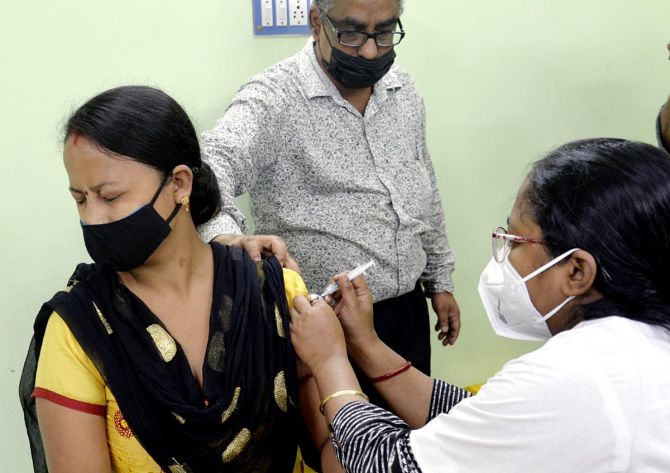Repeat infections with the SARS-CoV-2 virus may increase the risk of organ failure and death, according to a study which suggests that people should practice vigilance to reduce their chances of reinfection.

The research, published on Thursday in the journal Nature Medicine, found that repeat COVID-19 infections contribute significant additional risk of adverse health conditions in multiple organ systems.
Such outcomes include hospitalisation; disorders affecting the lungs, heart, brain, and the body's blood, musculoskeletal and gastrointestinal systems; and even death, the researchers said.
Reinfection also contributes to diabetes, kidney disease and mental health issues, they said.
"During the past few months, there's been an air of invincibility among people who have had COVID-19 or their vaccinations and boosters, and especially among people who have had an infection and also received vaccines; some people started to referring to these individuals as having a sort of superimmunity to the virus," said senior study author Ziyad Al-Aly, from Washington University School of Medicine, US.
"Without ambiguity, our research showed that getting an infection a second, third or fourth time contributes to additional health risks in the acute phase, meaning the first 30 days after infection, and in the months beyond, meaning the long COVID phase," Al-Aly said.
The study also indicated that the risk seems to increase with each infection.
"This means that even if you have had two COVID-19 infections, it is better to avoid a third. And if you've had three infections, it's best to avoid the fourth," Al-Aly said.
Limiting exposure to the virus is especially imporatnt with new variants emerging, mutating and already causing an upswing in infections in some parts of the world.
"People should do their best to prevent repeat infections by masking, for example, getting all of their eligible boosters, staying home when sick. Also, get a flu shot to prevent illness," Al-Aly said.
"We really need to do our best to reduce the chance we will have a twin-demic of both COVID-19 and the flu this winter season," he added.
The researchers analysed about 5.8 million de-identified medical records in a database maintained by the US Department of Veterans Affairs, country's largest integrated health-care system. Patients represented multiple ages, races and sexes.
They created a controlled data set of 5.3 million people who did not test positive for COVID-19 infection from March 1, 2020, through April 6, 2022.
The researchers also compiled a control group of over 443,000 people who had tested positive for one COVID-19 infection, and another group of nearly 41,000 people who had two or more documented infections.
Of the latter group, most people had two or three infections, with a small number having had four infections and no one with five or more infections, the researchers said.
Statistical modeling was used to examine the health risks of repeat COVID-19 infections within the first 30 days after contracting the virus and up to six months after, they said.
The study accounted for COVID-19 variants such as Delta, Omicron and BA.5. Negative outcomes occurred among the unvaccinated as well as those who had received shots prior to reinfection.
Overall, the researchers found that people with COVID-19 reinfections were twice as likely to die and three times more likely to be hospitalised than those with no reinfection.
Also, people with repeat infections were three-and-a-half times more likely to develop lung problems, three times more likely to suffer heart conditions and 1.6 times more likely to experience brain conditions than patients who had been infected with the virus once, they said.
"Our findings have broad public health implications as they tell us that strategies to prevent or reduce the risk of reinfection should be implemented," Al-Aly added.










